Tooth Extractions Midwest City
Sometimes Tooth Removal Is the Right Decision
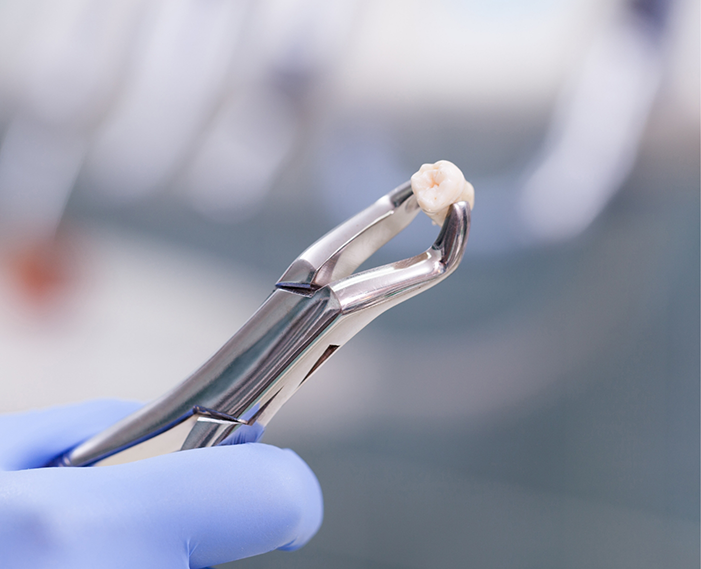
Removal is not the first option Dr. Kendrick wants to consider when you have issues with a tooth, but sometimes, it is the only choice. The damage may be so significant that extraction is necessary to preserve your oral and general health. When tooth extractions in Midwest City are required, our team will make sure you understand why this approach is being recommended to you and that you’re comfortable throughout the procedure. Keep reading to learn more about this restorative dental treatment or give us a call because sometimes tooth removal is the right decision!
Why Choose Midwest City Dental Center for Tooth Extractions?
- Comfort Amenities Available for Patients
- Three Tooth Replacement Solutions to Rebuild Smiles
- In-House Membership Plan to Help Lower Out-of-Pocket Costs
When Are Tooth Extractions Necessary?
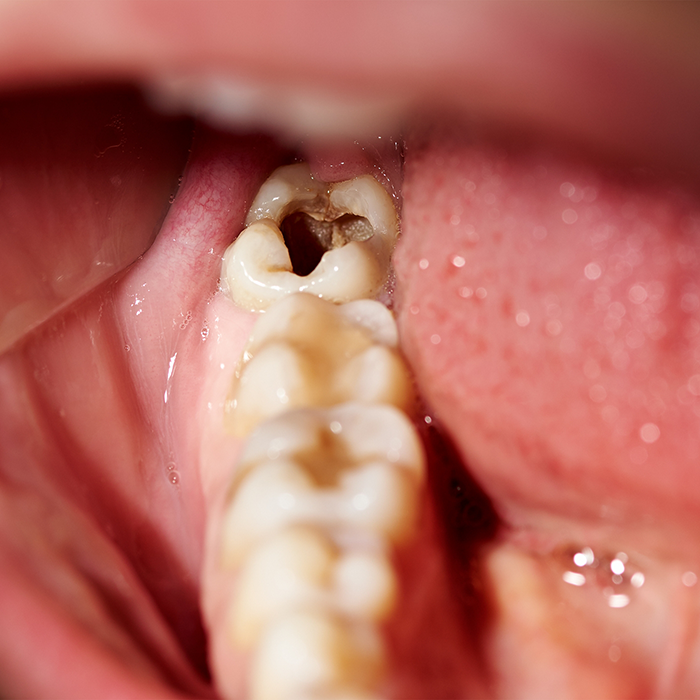
At Midwest City Dental Center, tooth extractions are only recommended if the tooth in question cannot be salvaged using a dental crown or root canal treatment. Although preserving as much of the natural tooth structure as possible is ideal, removal may be the best option for your oral health if you have:
- Extensive decay or irreparable damage to a tooth
- Severe infection that could spread
- Advanced periodontal disease or jawbone loss
- A primary tooth that hasn’t fallen out
- Impacted tooth
The Process of Removing a Tooth
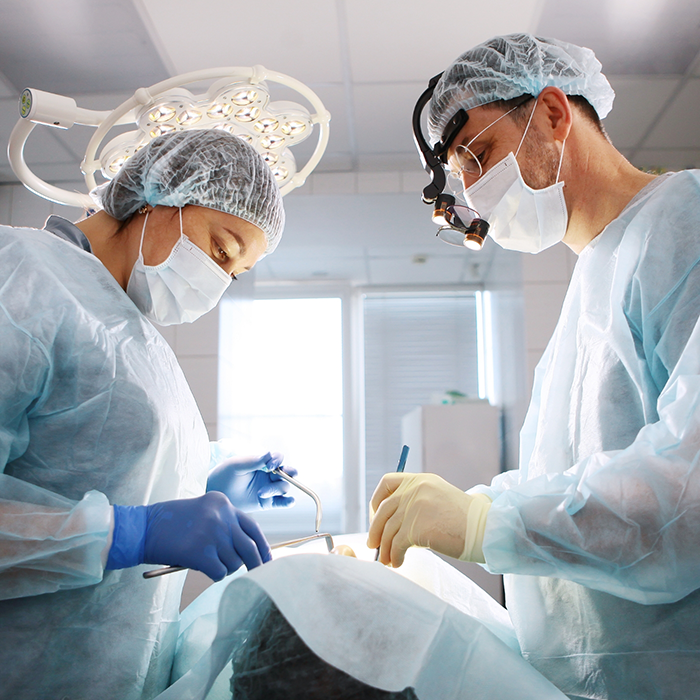
The last bit of advice you want to hear from your dentist is to have a tooth pulled. However, it may surprise you to learn extraction is not as terrifying as it sounds! There are two methods commonly used for removing a tooth: simple and surgical.
A simple extraction is done for a tooth that has fully erupted and is completely above the gumline. After Dr. Kendrick numbs your mouth, he’ll grasp the tooth with dental forceps and rock it back and forth until it separates from the gum tissue.
Meanwhile, surgical extraction is an ideal option for a tooth that isn’t fully above the gumline. This method involves making a small incision in the gums to access the tooth. Like a simple extraction, dental forceps will be used to grasp the tooth and remove it.
Tooth Extraction Aftercare
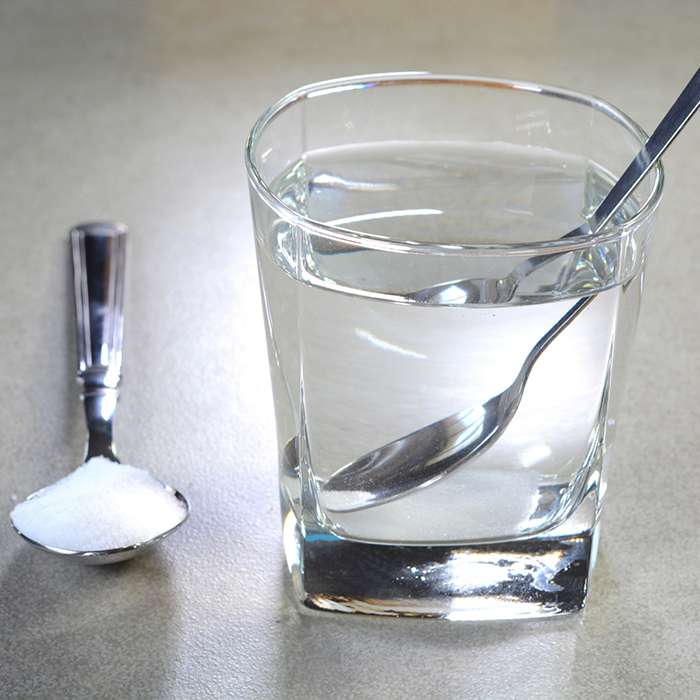
Following your tooth extraction, you’ll receive post-op instructions from Dr. Kendrick that you’ll need to follow diligently to make a swift and comfortable recovery. By keeping your mouth as clean as possible, you can ensure the surgical site heals properly. Here are some aftercare tips to keep in mind:
- Take prescribed or over-the-counter pain medication as needed to alleviate your discomfort
- Gently brush and floss around the surgical site to keep it clean
- Rinse with warm salt water after 24 hours to disinfect the site
- Stay hydrated and get plenty of rest to promote faster healing
- Use a cold compress on the outside of your mouth to minimize pain and swelling
- Avoid drinking from a straw
- Do not eat hard, crunchy, sticky, sour, or spicy foods for the first few days
Understanding the Cost of Tooth Extractions
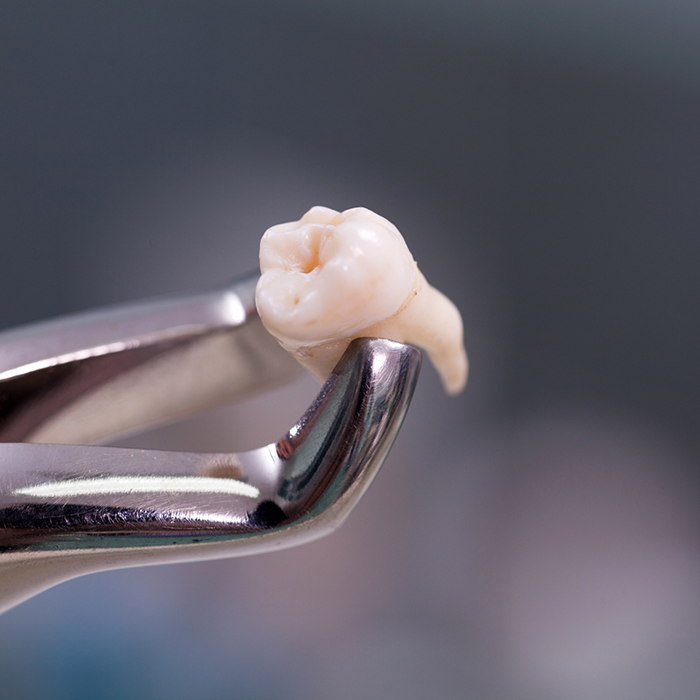
At Midwest City Dental Center, our team is committed to providing high-quality care that fits within your budget. Whether you need a simple extraction or a more complex surgical procedure, we aim to offer transparent pricing and flexible payment options to ensure your dental care is as stress-free as possible. Read below to learn more about common factors that influence the cost of tooth extractions and what we offer to help ease your financial burden.
Factors That Can Affect Tooth Extraction Cost
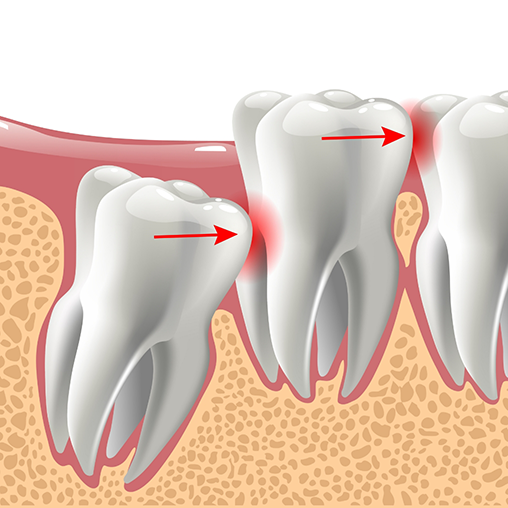
There are actually quite a few factors that can influence the cost of tooth extractions. The first consideration is the type of extraction needed. Simple ones, where the tooth is fully erupted, are generally less expensive than surgical extractions, which may involve removing impacted teeth or breaking them into smaller pieces for removal.
The tooth's location in your mouth can also affect the cost. Molars and wisdom teeth are often more difficult to extract and may require additional time and resources, leading to higher costs.
Lastly, pre-existing conditions such as infection or extensive decay may need more treatments like antibiotics or anesthesia, further increasing the overall cost. It's important to talk over all these potential factors with Dr. Kendrick during your consultation to receive an accurate estimate for your treatment.
Does Dental Insurance Cover Tooth Extractions?

Tooth extractions are typically considered necessary procedures, which means they are often covered by dental insurance. However, coverage can vary based on your specific plan and the type of extraction needed. Most insurance plans will cover a percentage of the cost, often around 50-80% for basic extractions, but it's best to confirm this with your provider.
If you’re not sure how to proceed, talk to us! Our team is here to help you navigate your insurance benefits and maximize your coverage. We’ll even file claims on your behalf so you can focus on your treatment and not the stressful paperwork.
Other Options for Making Tooth Extractions Affordable

At Midwest City Dental Center, we understand that dental care can be a big investment for many of our patients. To make tooth extractions more affordable, we offer several financial options.
- Our in-house membership plan provides discounts on various services, including extractions, which can help reduce out-of-pocket costs.
- For those who need additional support, we also accept CareCredit and Wisetack financing. These options allow you to spread the cost of your extraction over manageable monthly payments, making it easier to fit essential dental care into your budget!
If you’re having trouble budgeting for your treatment, don't hesitate to talk with our team. We’re here to make sure you receive the care you need and to help you find financing options that work for you!
Tooth Extractions FAQs
Does Getting a Tooth Extracted Hurt?
You can rest assured that at Midwest City Dental Center your comfort is our number one priority. Before Dr. Kendrick begins extraction treatment, he will administer a local anesthetic to your tooth and surrounding tissue to numb the area. You will not feel any pain during the extraction procedure!
Afterward, you may experience some soreness and mild discomfort. Following your aftercare instructions is essential in not only preventing infection but also reducing puffiness and promoting healing. If your pain worsens or you begin to exhibit signs of an infection (like a fever), then give us a call right away.
What Can I Do to Speed Up the Healing Time After a Tooth Extraction?
The best thing you can do to speed up your healing time is to go home and rest. Avoid exercise or strenuous physical activity for at least 24 hours and do your best to keep your head elevated. Next, make sure to keep the gauze in place as instructed by Dr. Kendrick. This will help the blood clot form. Do NOT touch the wound with your tongue or hands. In addition, avoid eating acidic foods that can cause irritation. It’s important to stay hydrated after a dental extraction, but do not use a straw and do not spit, as doing so could dislodge the blood clot. Finally, you can manage any swelling by placing an icepack against the outside of your cheek and taking pain medication as recommended by Dr. Kendrick.
Can I Smoke After Getting a Tooth Extracted?
In general, dentists in Midwest City strongly recommend that patients abstain from smoking for at least five days after getting a tooth removed. However, if you can, you should avoid smoking for two weeks. Tobacco products like cigars and cigarettes can delay the healing process, which is why you should not smoke after a dental extraction. If you’ve had difficulty quitting in the past, don’t hesitate to let Dr. Kendrick know so he can help you prepare in advance.
Can I Leave the Space Empty Following My Tooth Extraction?
The answer depends largely on the reason the tooth is being removed. For example, if it is being removed to make room in your mouth prior to orthodontic treatment, then the answer is “no.” If, on the other hand, the tooth is being extracted because it was damaged beyond repair, then you will need to replace it to have a complete, healthy smile again. If that’s the case, then we will review all of your treatment options before creating your custom treatment plan.
What Are My Options for Replacing a Missing Tooth?
You actually have a few options! The first is a dental bridge, which secures one or more replacement teeth in place with two custom-made crowns. The second is a dental implant, which replaces both the root and crown of the tooth in question. Patients often prefer the latter because – in addition to looking and feeling extremely natural – it can last for 30+ years with proper care.
Ultimately, the tooth-replacement solution that’s best for you will depend on your unique dental needs and smile goals. So, if you are interested in learning more about your treatment options, don’t hesitate to take the next step: schedule an appointment with our talented dentist, Dr. Kendrick.
What Can I Eat After My Tooth Extraction?
While you recover, it’s important that you stick to extremely soft foods that require very little chewing. A few examples include seedless fruit smoothies, cottage cheese, plain yogurt, and oatmeal. It’s also important that you wait to eat until you’ve regained full sensation in your mouth. That way, you don’t accidentally bite down hard on your lips, tongue, or cheeks, sustaining a serious soft tissue injury in the process.
How Should I Prepare for My Tooth Extraction?
There are actually a few things we recommend doing to set yourself up for success! The first is not using tobacco products for at least a week prior to your appointment. During that time, you should also avoid alcohol and arrange for someone you know and trust to drive you to and from our office.
The day before your procedure, make sure you have everything you need for the recovery period, including cold compresses and OTC pain medication. Then, do your best to get a good night’s rest. In the morning, choose something comfortable to wear and arrive a little early so you have plenty of time to complete any paperwork that’s necessary.
